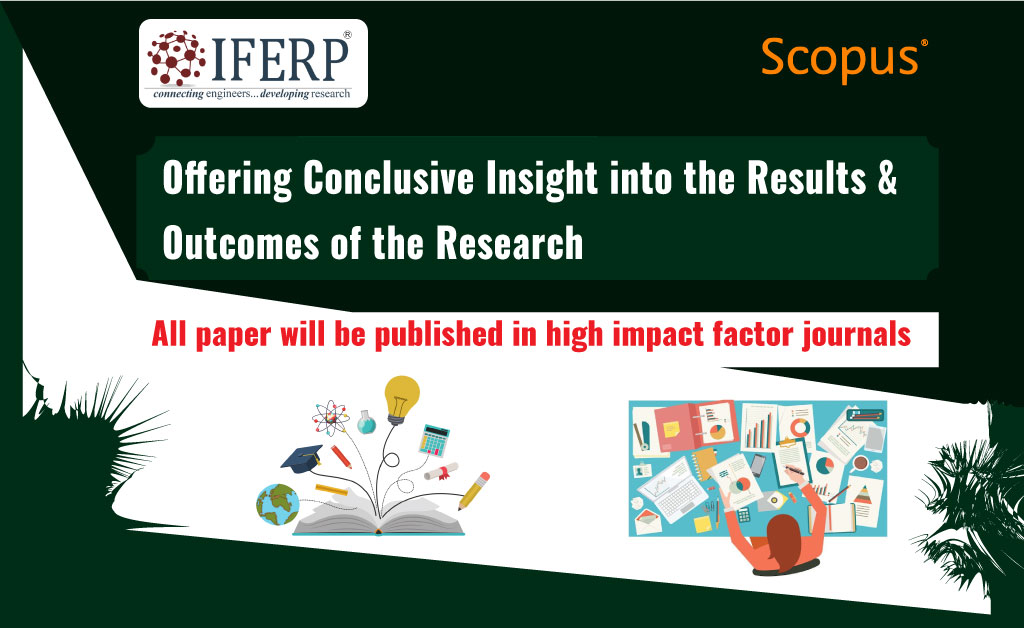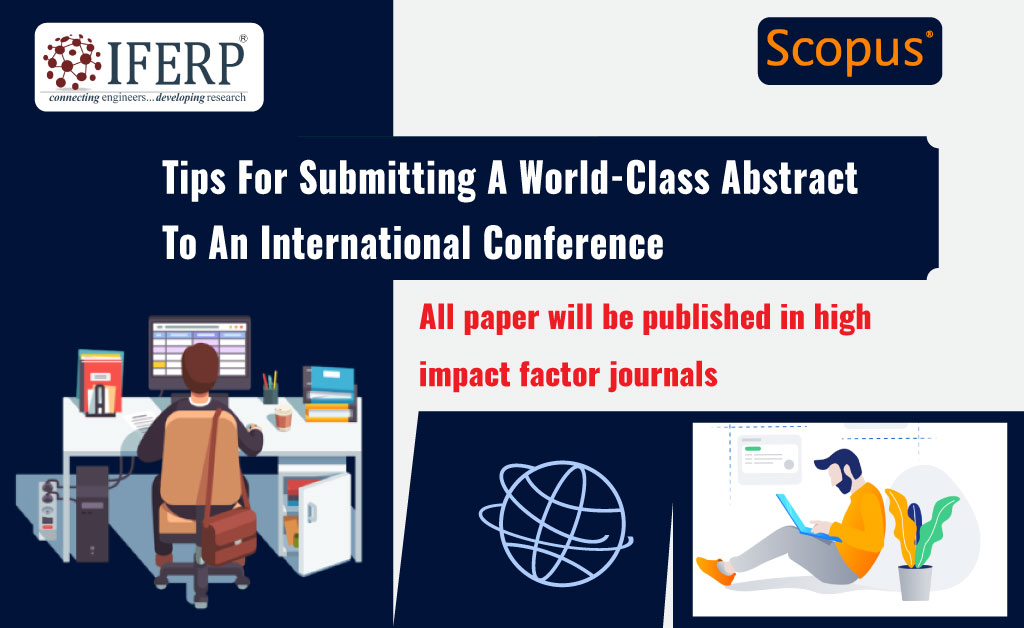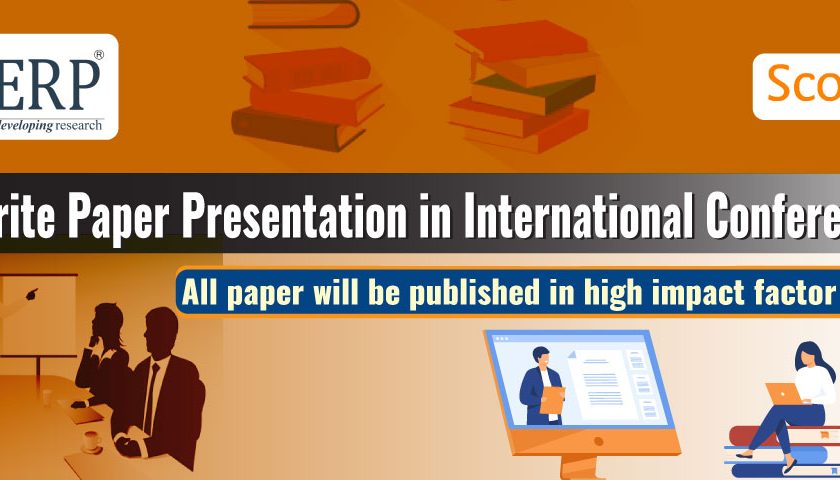Delivering paper presentations at international conferences is an integral part of graduate work. They offer researchers the chance to present their work and to network with other researchers. When a researcher wishes to get themselves invited to present their work at an international conference, the very first step they have to take is to write and submit an abstract of their research paper.
The entire purpose of a conference abstract is to summarize the main points of an article that the author of the article will present at the academic conference 2023 In it, the author (who is the researcher) must convince the conference organizers that they have something of significance and value to add to the conference. Therefore, the abstract should be focused and clear in explaining the topic and the main research points that the researcher will be sharing with the audience.
Each conference paper is unique because the research it presents must be so too. However, this basic process of how to write a conference paper will help researchers create a working draft.
- Keeping The Communication Crisp, Straightforward & To-The-Point
Before one can start writing their conference paper, they should make sure they are well aware of what they hope to communicate. They should be clear about what the key element of their research is and what their thesis statement will be. Everything they write should support this purpose statement.
- Keeping The Target Audience In Mind
The key to making one’s conference document compelling is to tailor it to their audience. For this, they will need to be aware of their audience and know what they want well and of course also choose the best international conference 2023 for them to present their work at. Researchers should ask themselves a few questions about their audience, including –
- Am I going to present to my peers?
- What are listeners already likely to know about this topic?
- What are the concerns of the public or the discipline in general?
- Are there particular topics that are relevant, important, and related to the research I am carrying out?
Researchers should take a few minutes to take notes on their audience. Tying their research to the concerns and needs of the target audience will make it easier to keep them engaged.
- Plotting The Flow Of The Presentation
Researchers should generate the outline for their article while they prepare for an oral paper presentation for a conference 2023. Making a plan at this point will do two important things –
- help in organizing one’s thoughts for the oral presentation, and
- offer a chance to revise the document based on questions raised at the end of the conference.
- Preparing A Killer Introduction
Researchers should write an introduction that will capture the reader’s interest, especially if they haven’t listened to the oral presentation. In the first paragraph, researchers should aim to tell the reader what they intend to share or prove. It is imperative that they are clear about this from the start.
- Developing The Presentation In Stages
From the outline, researchers should start writing their first draft. As they write, they should seek to include a more comprehensive and detail-oriented description of the actual work that was carried out. These details are often not emphasized enough during an oral presentation but should be fully detailed in the actual document reporting the results.
In addition, they must support their claims with data from their conference document. These supporting details will add strength to the presenter’s argument and keep the reader engaged in the work.
- Offering Conclusive Insight Into The Results & Outcomes Of The Research
The results portion of an article will be much the same as the content of the oral presentation. Researchers should include their research results in enough detail in order to ensure that the audience is interested and to also prove the point they wish to make through their work. When writing a conclusion, researchers should also comment on the direction of future work and follow-up.

The focus of one’s article should be limited to the work presented at the conference. Researchers should not include any work done during the course of the conference because this will blur the line between the work that was presented at the conference and the follow-up work that continues to take place.
- Offering References For Clarity & Context
Researchers should include all the resources that they used as reference sources and those that cite the results of the problem they are investigating. The more complete the references, the better their item will be received. This will show that they have a good knowledge of the field and that their work is original and unpublished.
- Reading The Conference Paper Aloud Works Wonders In Getting To The Desired Outcome
Researchers should try reading the document aloud to find any areas that bother them or that seem to hang around. They should see where they can cut out unnecessary text and also keep in mind that it will alienate their audience if they go over the allotted time for their presentation as too much meandering will cause the audience to lose interest.
If the audience will be reading directly from their paper during the oral presentation, researchers should make sentences shorter and add prompts in the text to allow them to research and ensure that they have the audience’s best interest.
- Gaining A Concrete Understanding Of The Particular Format For Conference Papers (Adopted By An International Conference)
The organization of a researcher’s conference paper should follow a logical sequence, from experimental design to conclusions. One should think a lot about fully evaluating the results and conclusions and reporting them in the conference proceedings or within a professional journal and popular publications 2023 associated with the conference.
In general, researchers can use a basic research paper format for their conference paper, but there is flexibility. At a minimum, it must comprise of the following –
- an introduction that clearly states their intentions for the article and their research;
- lots of data to support their claim;
- a clear-cut conclusion;
- valid references for the research and data used.
- Typical Length Of A Conference Paper
Many conference documents are too long. Researchers should consider how long they are going to talk. Many presenters speak for ten to twenty minutes in a conference. If it takes two minutes to read a double-spaced page, that means the document should not exceed five to ten pages.
- Adhering To Formatting Guidelines
Researchers should always check with the conference to which they are submitting their work. They may have specific requirements for the article and abstract format, including the size of the margins, the use of page numbers, and other details. They can also have a page limit.
Tips For Submitting A World-Class Abstract To An International Conference
- Investigating The Conference Thorough
Researchers must know the deadline for submitting abstracts. And they must look to submit their abstracts as soon as possible. Presenters should research the conference to see what the purpose is and how their topic fits in with the overall agenda of the event. This includes reviewing all the sessions that have been scheduled as part of the conference. This will help one notice which specific session would work best for their article. This is exactly why it’s crucial that researchers choose the best international virtual conference 2023 for them to present their paper at, because not all conferences have sessions scheduled that will suit the theme of their research work the best.

- Not Neglecting Keywords
Keywords play a crucial role in increasing the discoverability of an article. Researchers must ensure that they use the keywords that best reflect the content of their articles.
- Keeping Things Concise
Once they are clear on the topic of the conference, researchers can tailor their abstracts to suit specific sessions of the event. A vital part of keeping one’s focus is knowing the word limit for the abstract. Most word limits are short, so it is important to be concise.
- Referring To The Abstracts Of Past Presenters
Looking at sample abstracts is always a huge help. Researchers should look at general examples of abstracts and examples of abstracts prepared by veteran researchers in their field. They should take notes to understand the main points that make a summary effective.
- Avoiding Fillers & Jargon
As stated earlier, the summaries are meant to be concise but informative. One should avoid using words or phrases that add no specific value to their research. Keeping sentences short and crisp to convey as much information as needed is also paramount.
- Editing With A Fresh Mind
After writing their summary, researchers should stay away from it and then examine it with a fresh mind. This will help them modify it to improve its efficiency. Moreover, they can also avail professional editing from services from globally reputable organizations such as IFERP that offer fast deliveries.
- Remaining Focussed & Getting To The Point Quickly
The main point of a summary is to catch the attention of the conference organizers. So researchers need to focus on developing the importance of their work. Researchers should look to establish the importance of their ideas in as little as 250 to 300 words.
Benefits Of Presenting A Paper At An International Conference
Speaking at an international conference can be quite intimidating for those with little or no public speaking experience. Presenting a particular project, experience or topic is not as easy as it seems. One will have to communicate in a simple and understandable way, interact with the audience, but most of all, they have to get their attention and involve them in their presentation.
However, submitting an article and becoming a speaker for a conference comes with a long list of benefits for both one’s personal and professional development. Detailed below are a few reasons why going through the entire paper presentation experience at an international conference will prove to be an incredibly gratifying and valuable experience.
- Elevating One’s Professional Skills
Presenting and getting to speak at an educational conference in 2023 is an opportunity to build self-confidence, improve communication skills, and develop leadership and influence. By developing these skills, one will be able to read and understand people and their needs, which will allow them to create real positive change in their lives.
- Elevating One’s Professional Reputation
Everybody is aware of the fact that no matter what profession or discipline a professional is involved in, their reputation precedes them. Public speaking and conference paper presentation opportunities are great opportunities to build one’s reputation by showcasing their knowledge and expertise to the world. If one is able to deliver an engaging and interactive presentation, their audience will remember them.
- Getting The Edge Of Peers & Competition
Not all people have what it takes to speak in front of a large audience, and employers are well aware of this fact. This is why speaking at a conference is a great addition to one’s resume that could put them in the running for the next promotion and/or the job of their dreams.
- Inspiring & Influencing The Audience
Those researchers who have an innovative project or an idea for the future should look to share it with other people in their field and discipline to inspire them and influence change as well as development in the field.
Presenting at an international engineering and technology conference also has other advantages. Most conferences offer free conference passes to speakers, delegate packs, and refreshments (which are always a great reason to submit a presentation).
As the international conference season comes into full flow, authors have many advantages in taking advantage of the conference article submission cycle to the journal.
- Advantages For Authors
As an author, submitting an article to a conference first provides feedback before submitting it to a journal for final decision. The lectures provide multiple points of feedback, from peer reviews and presentation questions to post-event discussions generated by the e-library proceedings.
- Advantages For Conference Organizers
Conferences also benefit from article submissions by providing a forum for the global community to collaborate and discuss. On several occasions, this will provide preliminary information on new research streams, research methods, and the resulting impact of global collaboration and studies.
- Advantages For Academic Journals & Scientific Publications
Journals can most certainly leverage conferencing for an article submission cycle. Since the peer review effort has already started, this results in better quality article submissions to journals and saves time for editors and reviewers. It may also result in article submissions that better match the mission of the journals and/or the scope of special issues.
Peruse through a list of 2023 college conferences set to take place in 2022 to find out about events that will be most suitable for you to present your conference work at.


